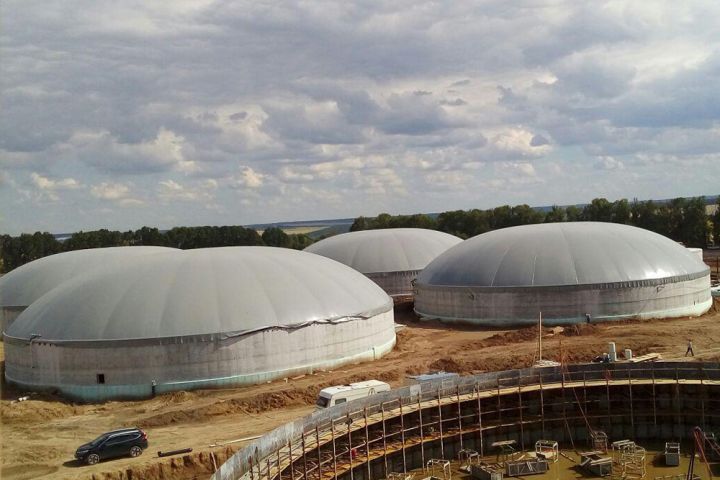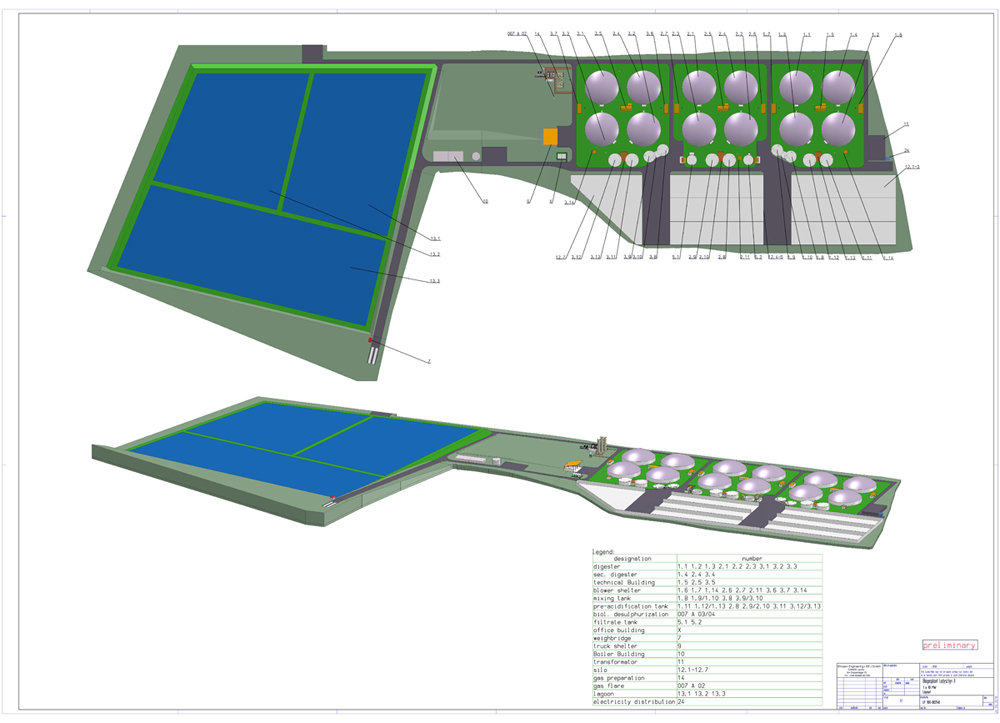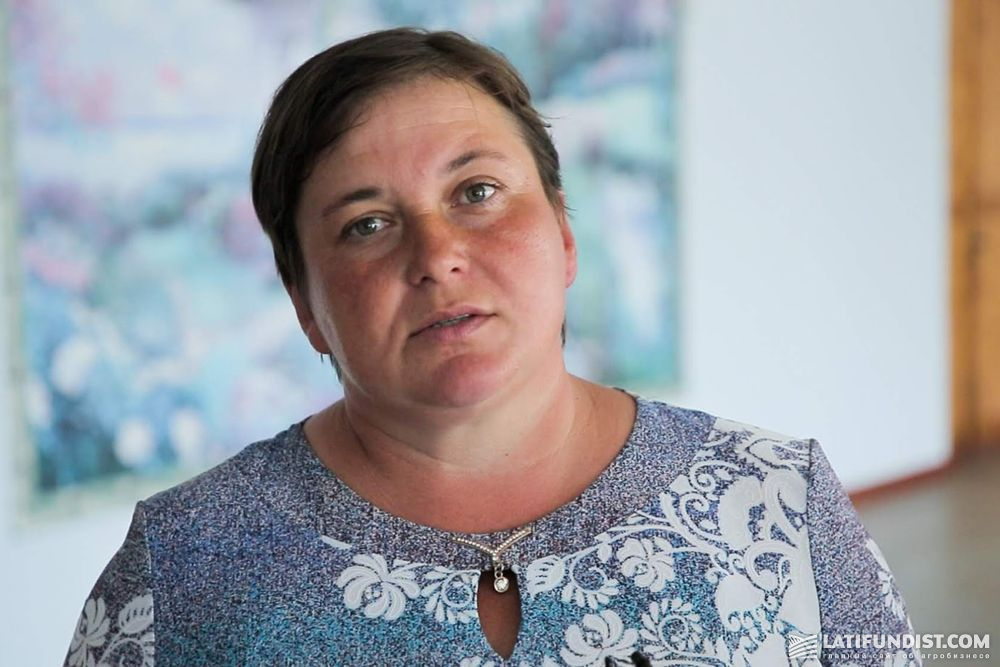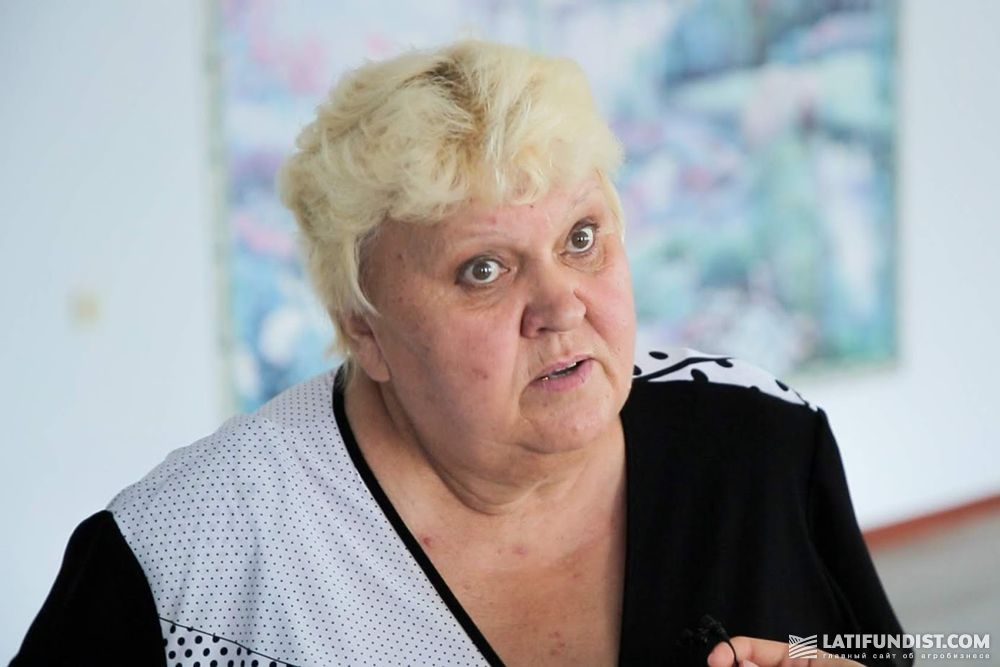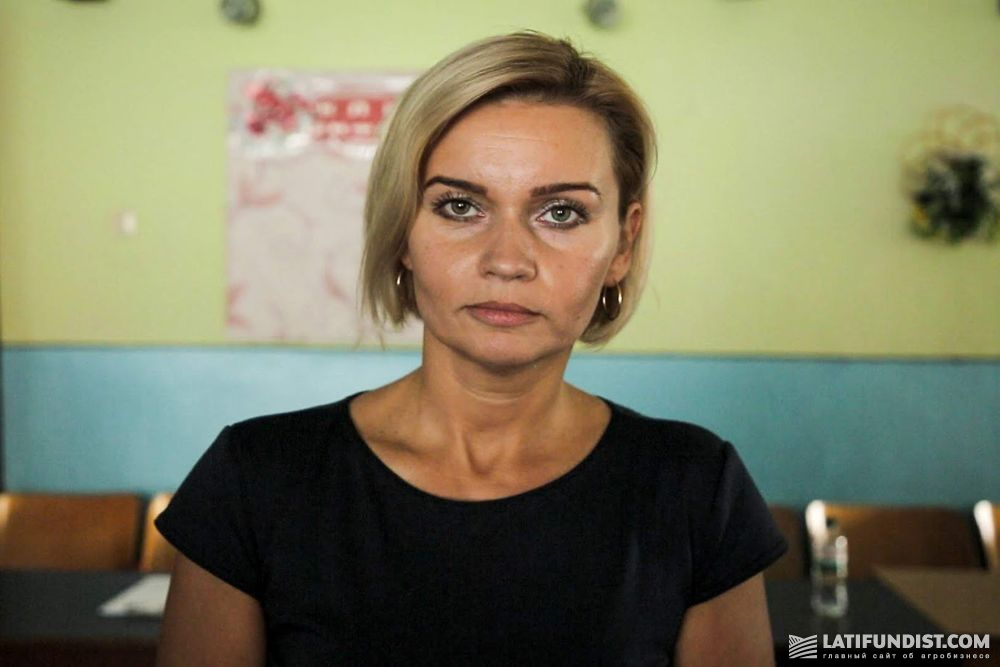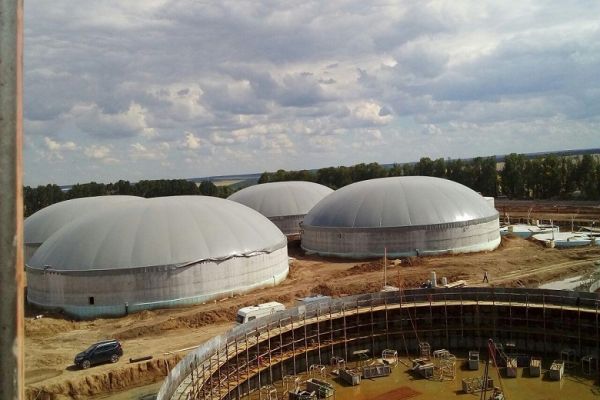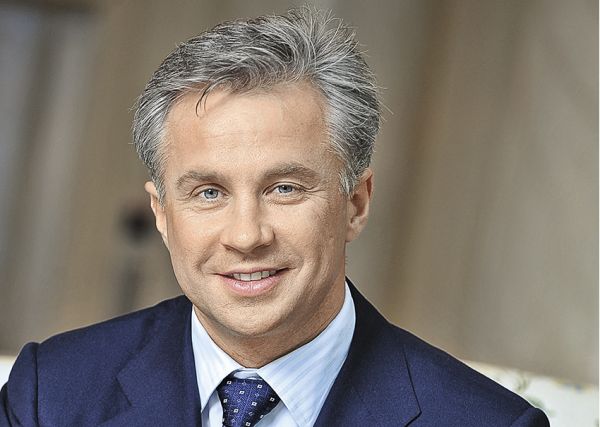The Voice of the People: What the Vinnytsia Community Thinks About the Construction of a Biogas Complex by MHP
The palace of culture of the village of Bilousivka in the Vinnytsia region came alive with people and voices. The public hearing on “the assessment of the environmental impact of building the second phase of the biogas plant at the Vinnytsia Poultry Factory by Myronivsky Hliboproduct (MHP)” made people abandon their routine and take an active interest in the local matters. Despite the wordy phrasing, the aim of the hearing was crystal-clear: how the plant would affect the environment.
A year ago, the locals approved the building of the first phase of the plant on the territory of the nearby Vasilievka village.
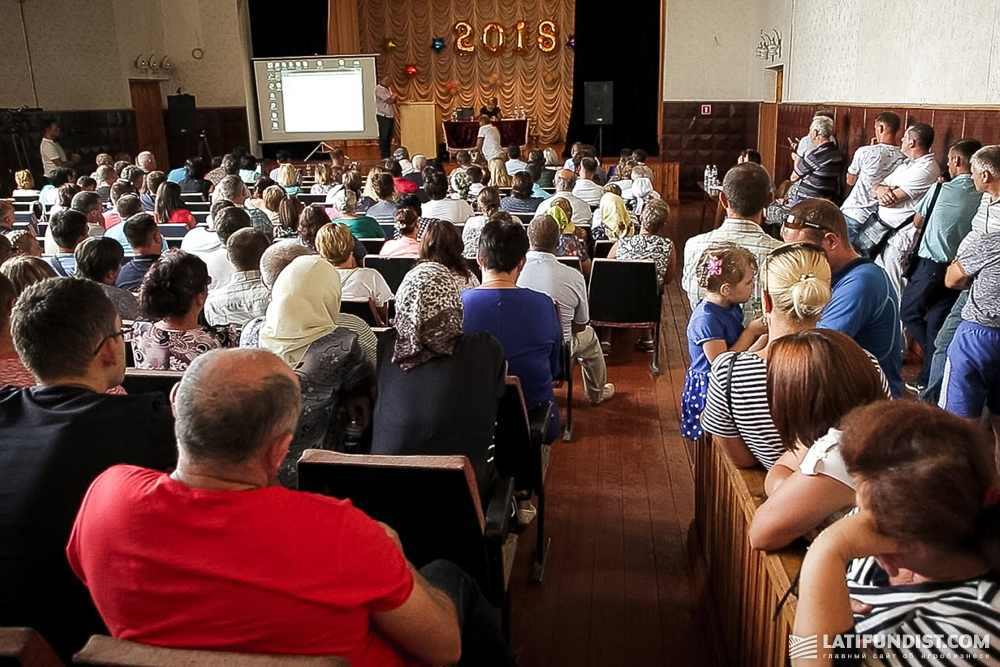
Today, the stakes are higher given the recent Agromars environmental scandal and the complaints against the Vinnytsia Poultry Factory filed by several Vinnytsia villagers to the World Bank and EBRD. The hearing was also attended by eco-activists. According to the law passed last December, companies are obliged to assess the environmental impact of such plants prior to building them.
In the hall, all eyes were on Igor Leshchenko, the executive director of the Vinnytsia Poultry Factory, who was talking about the launching of the two phases of the biogas production which would allow recycling the chicken manure of the Factory into thermal energy, electricity, and organic fertilizers. He spoke in details about the construction and operation of the complex, and its influence on the environment.
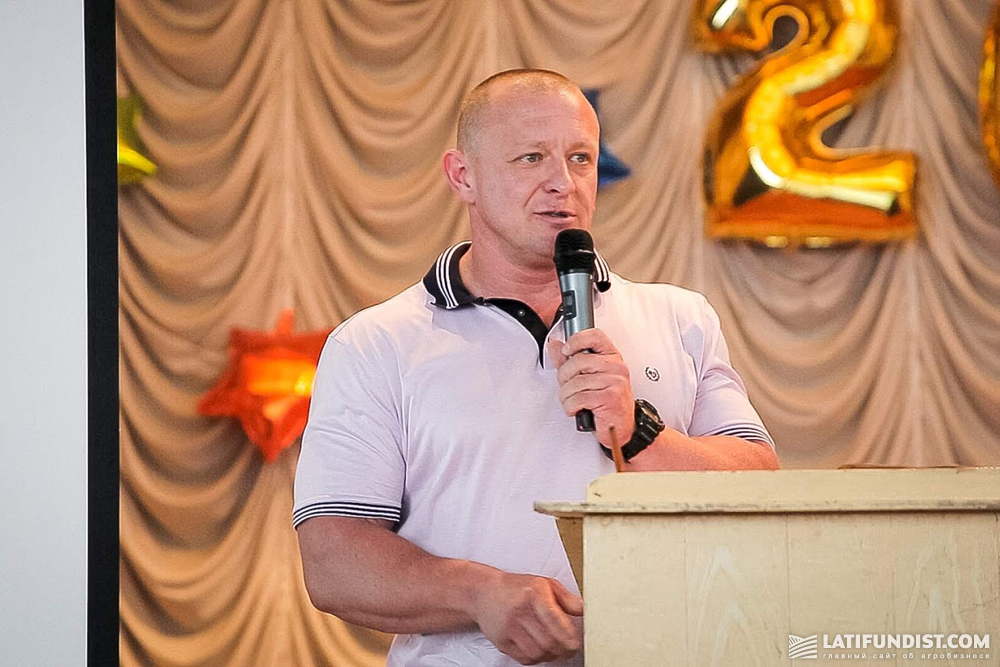
Here are the highlights of what was discussed.
Land
The second phase of the complex, including all the main and minor buildings, and the biogas production site, will cover 22 ha of land.
Location
According to the map Igor Leshchenko showed, the second phase will be located next to the abandoned quarry away from the residential area. The nearest house is 1 km away (the legal requirement is 500 m), the river is 500 km away (it should be no closer than 200 m by the law).
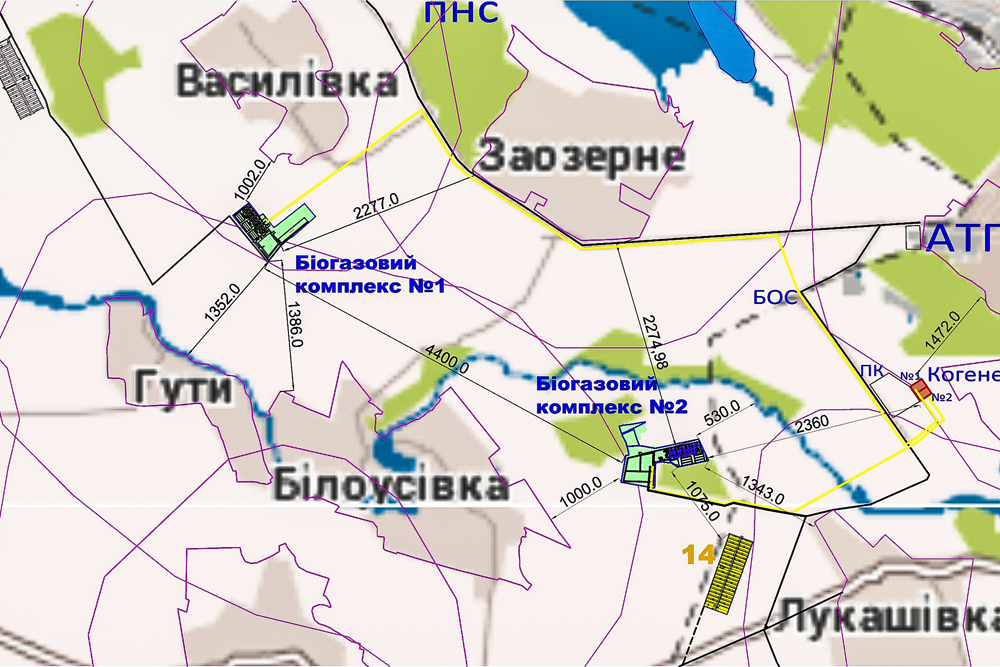
The products of the biogas complex
The complex will recycle the manure and production waste such as sludge and water from poultry houses, fat and corn silage.
The complex will include heat generators, i.e. steam boilers which convert natural gas into electricity and thermal energy. The generators will provide energy for MHP and the region. 10,000 kWh of electricity per hour that the complex will produce is enough energy for 15-20 thou. apartments. The energy will be used to the full. It will cover 40% of the energy needed for the slaughterhouse and help economize 10 mln m3 of the natural gas.
The generators should be located at least 300 m away from human settlements. In this case, Ladyzhyn village is 1.5 km away from the complex.
The transportation of raw materials
The transportation of raw materials was one of the most burning questions with the villagers. Igor Leshchenko assured people that the trucks transporting the raw materials from the farm would not pass the residential areas on their way to the Bilousivka complex. According to Mr. Leshchenko, the company planned to build concrete roads which would bypass the villages, so the residents did not have to worry about that.
Manure storage
Due to technical reasons, manure accumulation is inevitable. The poultry houses are thoroughly cleaned every 60 days. It takes 9 poultry houses to provide the biogas complex with manure. During the cleaning, the complex will operate on the manure delivered by the trucks for 28 days, the rest 32 days the manure will accumulate and it needs to be stored somewhere. Currently, the company is building a special storage.
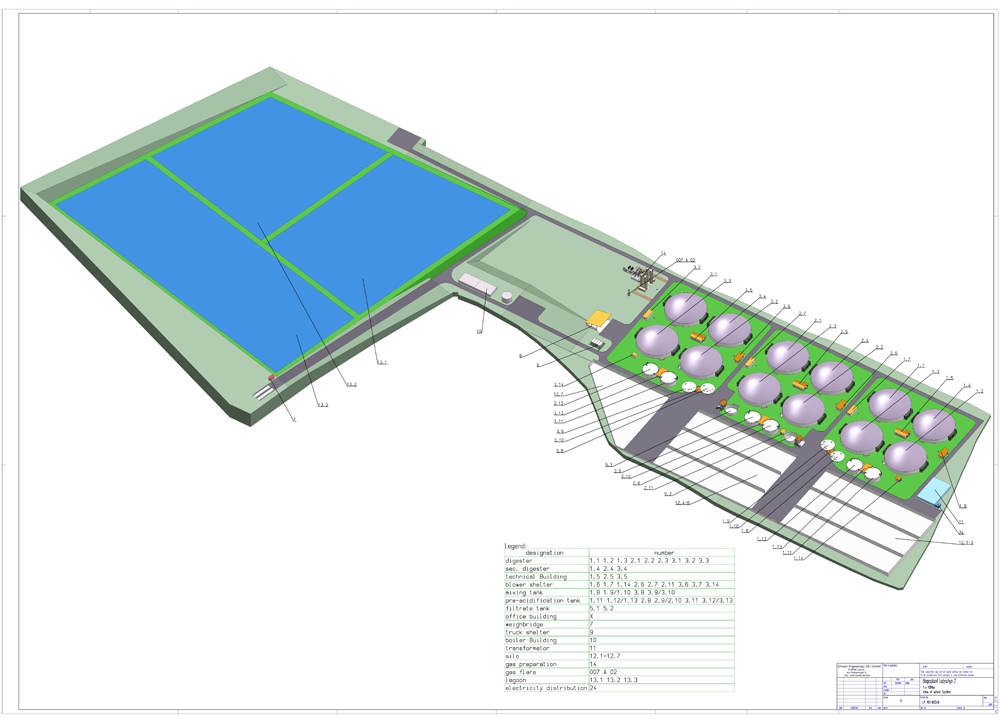
Fertilizers
The biogas complex can recycle 460 tons of manure daily, i.e. 170 thou. tons per year, and extract solid and liquid fractions.
Solid fractions make for valuable fertilizers. It is devoid of the characteristic manure smell. The new complex will help decrease the area allotted to manure dumping sites 5-fold. According to Igor Leshchenko, the permitted amount of manure should not exceed 20 t/ha depending on the type of the soil. After the processing at the complex, the amount may be increased to 100 t/ha.
Liquid fraction may be applied like any other fertilizer during the vegetation period. The complex can produce 150 thou. tons of the product. It will be stored in special reservoirs for 100 thou. tons — the lagoons — at the complex. The fraction will be applied twice a year in spring and fall, which means that the lagoons capacities will be more than enough.
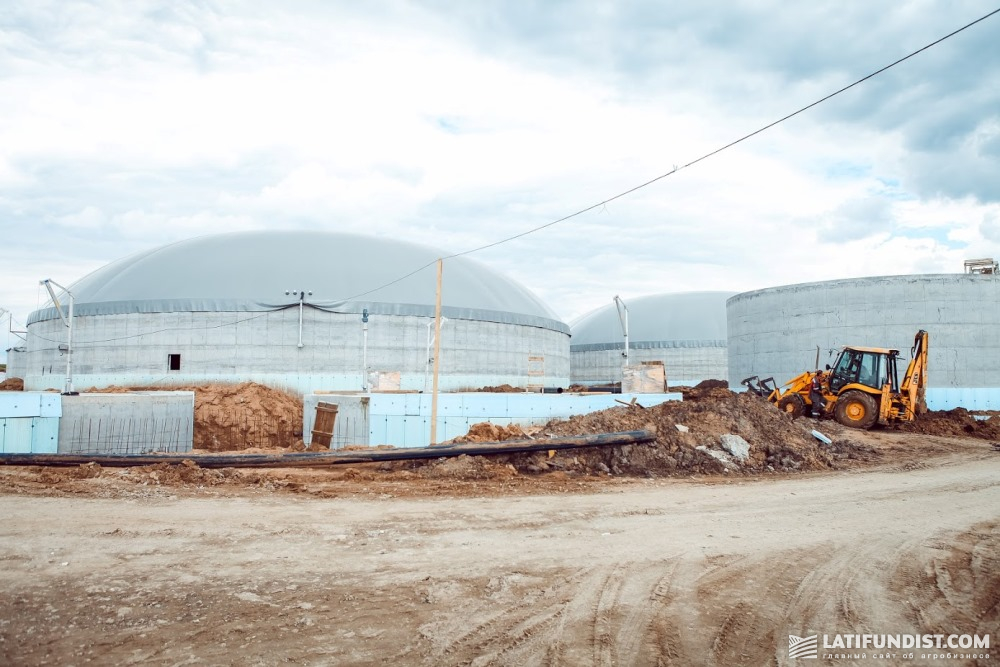
Job opportunities
The new facility will employ 30 people. In general, the complex will provide 66 workplaces.
Pollution risks
The production processes of poultry factories inevitably lead to increased atmospheric emissions. Igor Leshchenko told that the biogas plant would help to partially solve the problem by reducing the emission to 85 thou. tons per year.
However, Anna Danilyak, a representative of the public organization Ecodia, noted that the biogas complex belongs to objects of increased environmental danger.
“We run risks since it is a very technologically complex process. The capacities are unparalleled to those of any similar plants in Europe. Thus, it is important to analyze the risks very carefully. Another thing to consider is the density of industrial buildings in the area. 80% of all the emissions of the Vinnytsia region are concentrated here. It is home to the Vinnytsia Poultry Factory and Ladyzhyn TPS, now they want to build the biogas complex here,” she said.
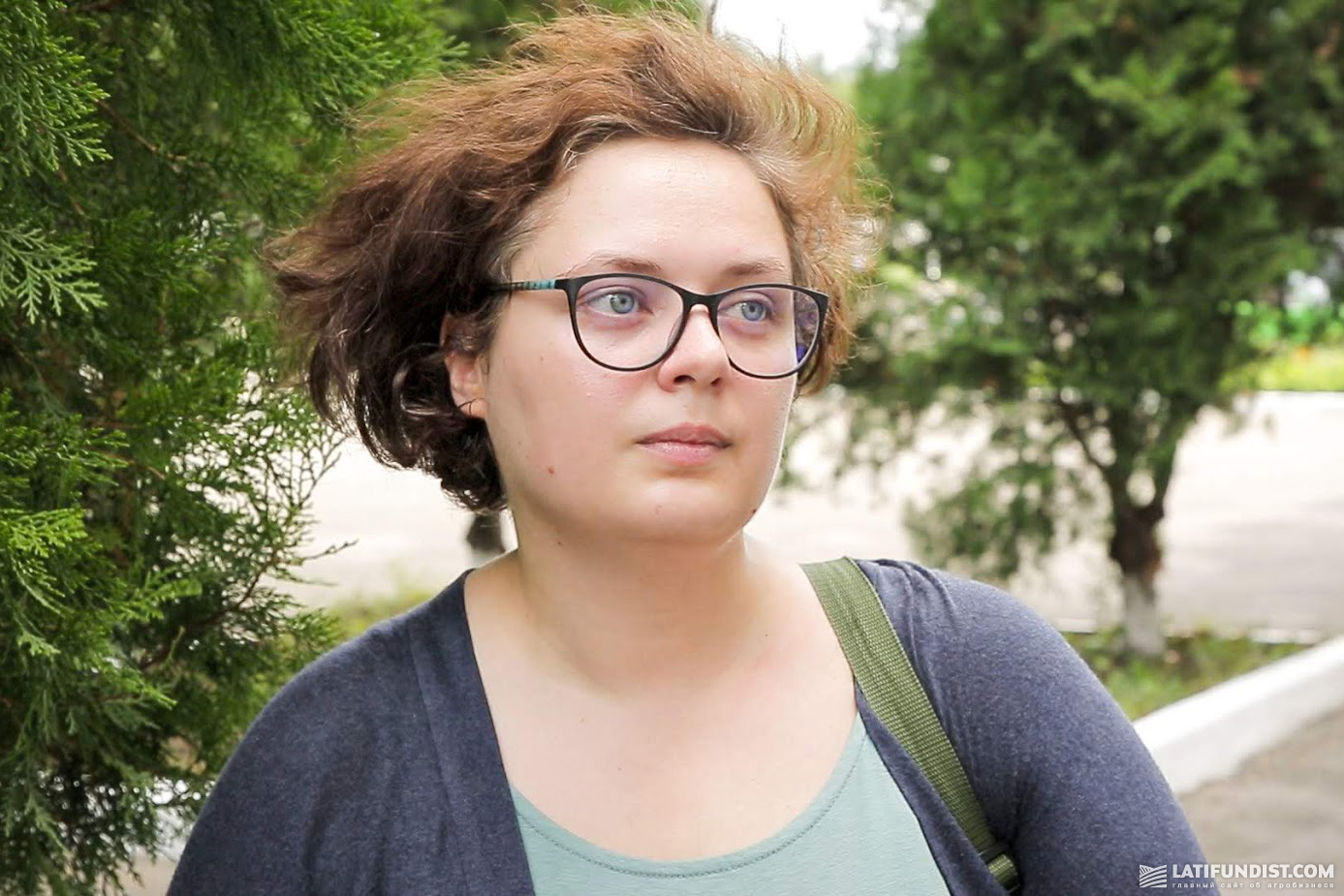
Another popular question concerned the risk of contaminating the soil and consequently the groundwater with liquid waste. Besides, people expressed concern that the complex of that size would use up all the local water supply. Igor Leshchenko assured that the complex requires 5.5 m3 of water which would come from centralized chains. Thus, there should be enough water for everybody.
The MHP representative also noted that the walls of the lagoons would consist of packed clay covered with 1.5 mm membrane used by wastewater treatment plants. The service life of the membrane is 50 years. He remarked that there was not a remote possibility of groundwater contamination since it ran 8 meters deep.
Learning from mistakes
The presentation of the project featured a movie about the MHP biogas complex in the Dnipropetrovsk region. Igor Leshchenko admitted some flaws in its construction which they would try to avoid in Vinnytsia.
A citizen of Ladyzhyn Yuriy Nagornyi expressed doubts about the improvements. He told that his mother lived near the biogas complex.
“The stench never easies off. The clothes smell of it for three days after you leave the place. People have the right to clean air. I live in Ladyzhyn and I can tell that the Vinnytsia Poultry Factory makes the air impossible to breathe,” complains the man.
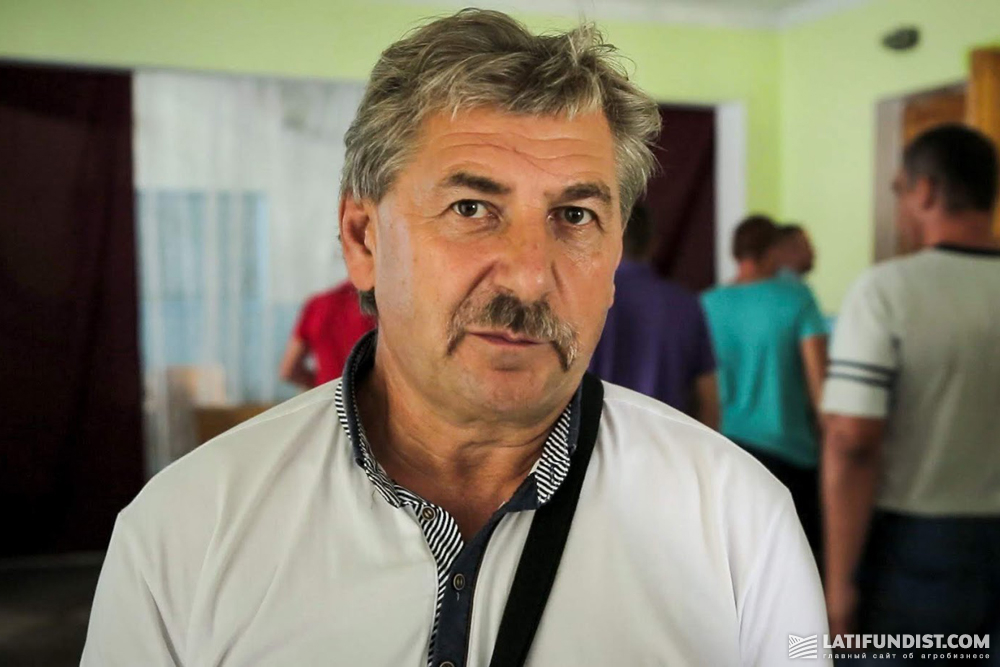
In his turn, Ivan Traxler, the director of the MHP Eco Energy, told that the biogas complexes that recycle organic waste, namely chicken manure, had been successfully operating in Europe for 20 years causing no complaints because they were designed to neutralize the smell not to cause it.
“This technology has been successfully developed by our company in the Dnepropetrovsk region, where 100% of the manure is utilized. There is no smell, the chicken manure directly enters the biogas plant without additional storage and transshipment,” added the MHP representative.
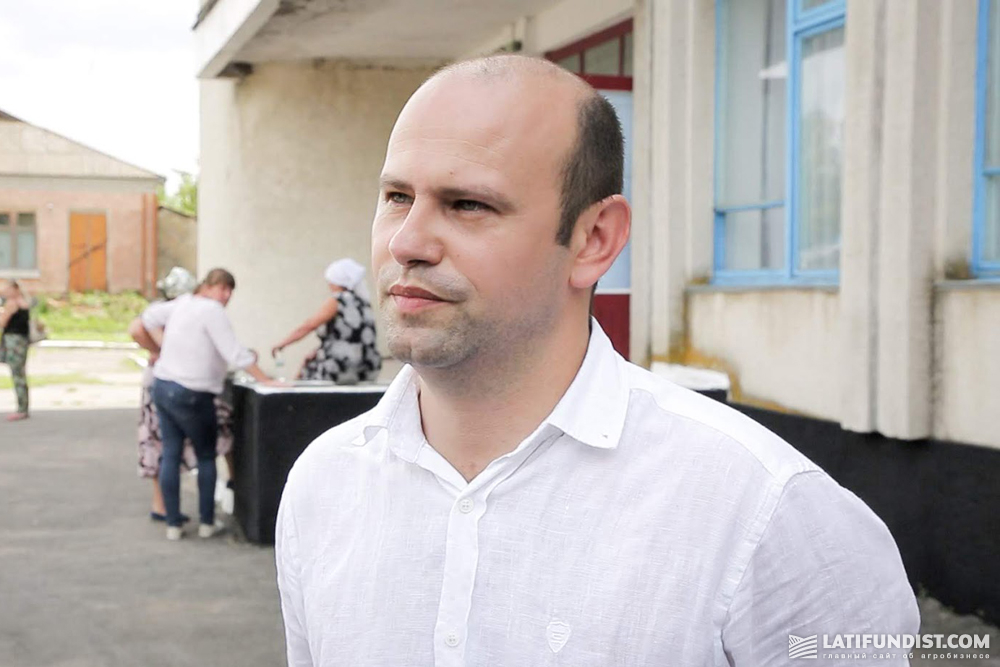
Most of the residents of Bilousivka and the nearby villages do not mind the construction of the complex. The main motivating factor for supporting the construction is the social policy of the holding. A lady from Bilousivka, Lyubov Maksimchuk, pointed out that the Vinnytsia Poultry Factory provides people with jobs and fulfills its social responsibility.
“Compared to other regions, people feel more optimistic here and the youngsters choose to stay in the village. There is a job for everyone at the Factory. Only a few people oppose the construction of the plant,” added Lyubov Maksimchuk.
Nadezhda Bezpiatachuk, a resident of the neighbouring village of Bogdanivka told us she came to learn of the decision of the Bilousivka people. Her village agreed to the building of the MHP poultry houses and did not regret it.
“I have four grandkids and UAH 1700 of pension. It is very important for retired people like me to get discounts at the local store. People are very grateful to MHP for that. The holding has also built new roads in the village. Children used to have difficulty getting to school. We had to ask once and they built the roads right away,” she explained.
A representative of the Ministry of Ecology and Natural Resources of Ukraine Victoria Tymoshenko said that the Ministry would need to analyze the report on the environmental impact of the complex to determine the environmental conditions of the complex construction.
In the meantime, Latifundist.com will keep you in the loop about the latest biogas developments.

